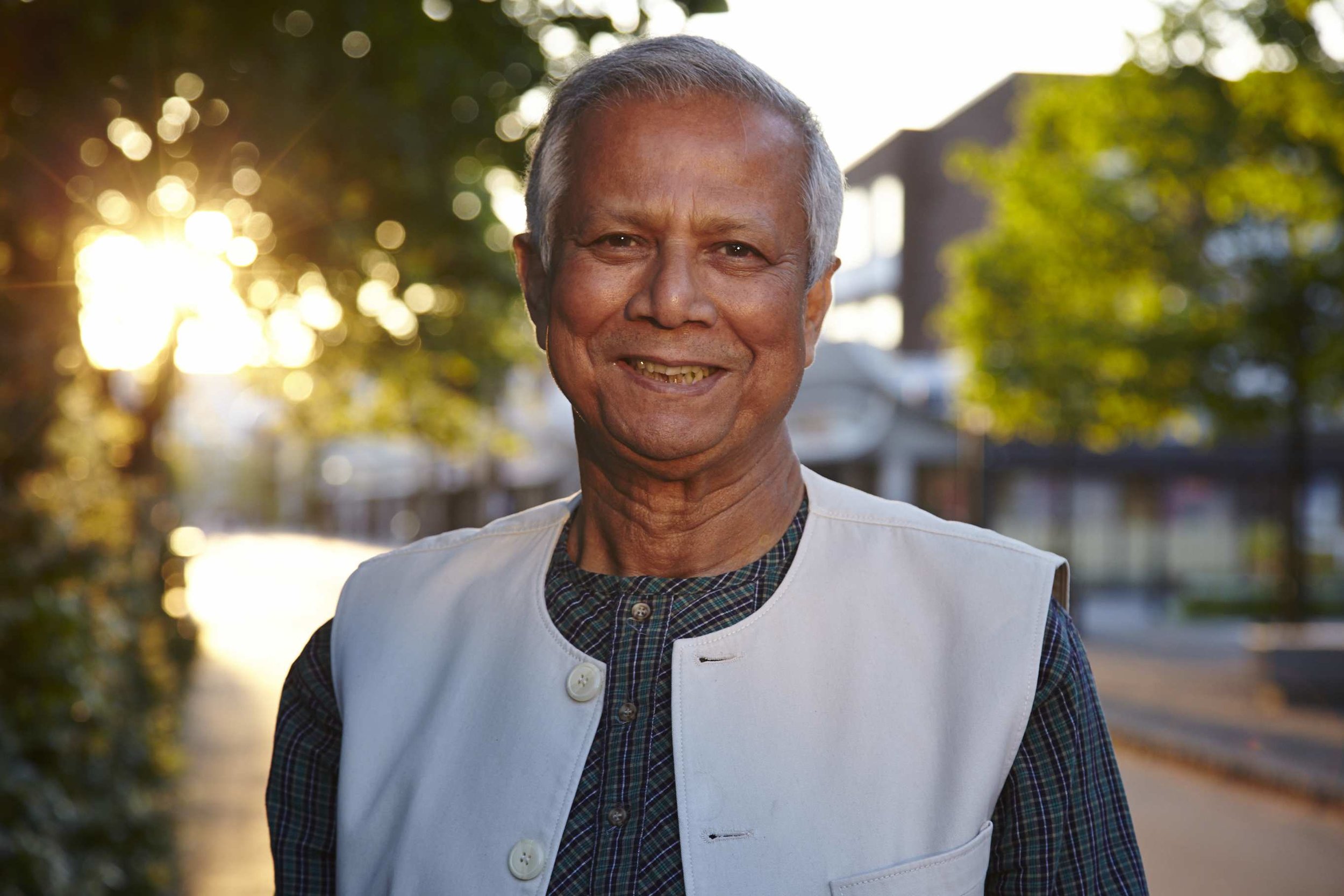Dhaka, Bangladesh: The Bangladesh Bank has sought details of bank statements of Nobel Laureate and Grameen Bank founder Muhammad Yunus.
The news has created ripples across the country.
The bank’s move has made many sit up and take notice in Bangladesh, especially in the hinterland that is home to majority of Grameen Bank’s operations.
It is reliably learnt that letters were sent recently to the veteran banker by the Financial Intelligence Unit (BFIU) of Bangladesh Bank, seeking last two years’ bank details of Yunus.
“We will wait for him to respond,” a senior official of BFIU, responsible for investigating money laundering and suspicious transactions, told this reporter.
Grameen Bank officials told reporters in Dhaka they were cooperating with the country’s apex bank. The banks in which Yunus has accounts have been asked to cooperate and send details to BFIU.
The BFIU move comes four months after the Department of Inspection for Factories and Establishments (DIFE) filed a criminal case against four officials including Grameen Telecom chairman Dr Yunus for allegedly violating labour law.
The other officials were Grameen Telecom managing director Ashraful Hasan, directors Nurjahan Begum and Md Shahjahan. All got bail in October in the case which re volved around alleged violations of labour laws like not regularising over 100 employees and not establishing a welfare fund for the labourers, among others.
Troubles within the Grameen Bank, claim many in Dhaka, are not new. Dr Yunus has been alleged of transferring in the late 1990s nearly $100 million originally meant for microcredit operations of his Grameen Bank to Grameen Kalyan, the non-profit sister concern to avoid tax. Dr Yunus said the transfer was done in good faith to benefit the poor.
More than two decades ago, the Wall Street Journal highlighted some big-time financial woes at Grameen Bank. The report was among the last articles written by Daniel Pearl—before he was abducted and murdered—and Michael M. Phillips which talked about how people in the hinterland were juggling loans from several microcreditors and resisting the Bank’s policies. The report further said the Bank’s loose accounting standards and slow disclosures were a big problem.
Across Bangladesh, complaints against representatives of Grameen Bank have been on the rise. The bank, which was launched in Bangladesh in 1976 by Yunus, then an economics professor, popularised the idea of giving small loans to the poor. The bank’s current assets stand at a whopping $2.8 billion and it has over 22,000 employees on its rolls.
“Once the loan repayment system worked almost 95% but now it is not that high. Secondly, bank officers are often blamed for their rude behaviour, they are worse than loan mafia,” says Aminul Abdullah Choton, a resident of Old Dhaka. Choton told this reporter that several complaints have been doing the rounds in Bangladesh about Grameen’s performance. “Grameen Bank officials have admitted to those excesses but all such misbehaviour got buried somewhere,” says Loton.
“Their accounts have often come under the government scanner because of charges that the bank was rolling over unpaid loans and its non-performing loans were much higher,” adds Loton.
Experts in Dhaka say Grameen Bank’s microfinance—it purely rests on subsidies—has more to do with social politics than economics. And many have questioned microfinance’s sustainability from a purely economic perspective. Grameen Bank has argued that its performance cannot be judged by strict financial parameters but that has not silenced the critics.
“There is huge peer pressure to ensure repayments and we have heard several cases of violence, especially with women that microcredit is meant to empower,” says a senior official of Bangladesh Bank.
The official, who spoke on conditions of anonymity, said complaints have grown and Grameen Bank’s image has taken a beating. “Many no longer call them good lenders but bad lenders.”
Sources told this reporter that many in Bangladesh have been reluctant to call attention to Grameen Bank’s troubles. Grameen Bank has also been blamed for charging about 40% interest from the debtors.
In 2017, Prime Minister Sheikh Hasina had blamed Dr Yunus for allegedly lobbying with former US Secretary of State Hillary Clinton to terminate the World Bank’s commitment of financing the Padma Bridge project. Hasina said Dr Yunus turned furious after losing in the legal fight for the post of the managing director of Grameen Bank. “Then his wrath fell on the Padma Bridge project. An editor of a renowned newspaper of our country met the then World Bank President Robert Zoellick and lobbied with Hillary to cancel the finance,” Hasina told the House.
Dr Yunus had blamed the government for corruption. Two executives of SNC-Lava, a Canadian engineering firm, were accused of bribing Bangladeshi officials to get contracts for the bridge over the river Padma. But the charges were dismissed by a Canadian court in 2017. Still, the World Bank, which had pledged $1.2 billion for the bridge, pulled out of the project, making big noise about corruption in the highest quarters of the government. But the Canadian court’s ruling was a shot in the arm for the ruling Awami League. Bangladesh decided to go ahead with the project by raising its own resources. The bridge is still being constructed.
Relations further soured between Hasina and Dr Yunus after the latter was removed as managing director of the Grameen Bank. Dr Yunus, who was legally disqualified for the post of MD, was asked by the government to be “Advisor Emeritus”. But Dr Yunus sued the government and Bangladesh Bank but lost the case.
The latest probe by BFIU, claim sources, could further sour relations between the Bangladesh government

